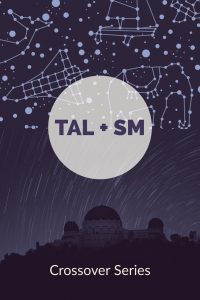After nearly three years of eating almost nothing but the watery beans and undercooked rice I was served while conducting research in Brazilian prisons, I couldn’t wait to hit the restaurants of New York City when I returned from the field. I was surprised to find that even the spiciest chana masala tasted bland. I was numb. Kind neighbors had to remind me to put on a coat when I left my apartment to walk to the library, even though the sidewalks were covered with ankle-deep snow. My nose didn’t even twitch when I was forced to wait for a train on a piss drenched subway platform.
Well-meaning friends recommended therapy. Graduate advisors suggested writing as a strategy for self-care. I watched movies instead.
One night, I went out to see Ônibus 174, a slick documentary directed by José Padilha that tells the story of a Rio bus robbery that turned into a nationally televised hostage situation. The film manages to vilify poor black youths who turn to violence out of desperation, and the police officers who are tasked with keeping such violence out of the neighborhoods where privileged Brazilians like Padilha live. I left the movie theater with hot tears in my eyes and cried for six hours. Then I opened a brand new notebook and, for four straight hours, wrote about the seemingly endless reasons my fieldwork experiences led me to despise Padilha’s film.
No one but me will ever read those pages. The writing they contain is too raw to share. I confirmed this a few weeks ago, when I pulled out that notebook to verify that the writing was as awful as I remembered; it was. Sure, I’d vividly described a few places and had jotted down the kernels of thoughts that have since ripened, or that I am still cultivating. But, overall, the prose was too emotional and self-absorbed to be ethnographic.
I’ve thought of that private notebook when reading the texts of some emerging ethnographers who have recently studied violence in the field and have rushed to write publicly about their experiences before they’ve had the time to really think them through. While I commend such individuals for having the courage and the discipline to write, I also invite them to pause before publishing. Ethnographic writing can be a therapeutic exercise, but to be effective it must also be more.
Ethnographers of violence who are far, far more accomplished than I have argued that writing can help an anthropologist who has been emotionally taxed by fieldwork to recover. Even as the act of writing plunges the anthropologist back into the field, it also offers him or her a way to move beyond personal experiences of horror or fear to arrive at larger conclusions about the human condition. But the movement from therapy to theory is not as simple as this statement implies. It is only over time, and via multiple drafts, that writing permits the ethnographer to tease out the ways that intensely felt personal experiences of fear or suffering jarred their previous understanding and challenged them to rethink troubling problems and uncomfortable truths from unexpected angles.
When we read Philippe Bourgois, Mick Taussig, or Donna Goldstein—or many, many others who write about violence with style and grace—we don’t always notice the intellectual labor that went into producing their work. The grit and urgency of the writing belies its polish. Many of us aspire to write so vividly, so personally. Yet, it is crucial to note that when we read texts like In Search of Respect, Law in a Lawless Land, or Laughter out of Place, even though we feel the immediacy of the ethnographic encounter by being privy to the author’s thoughts and emotions while in the field, the enduring contribution of these texts lies in what their authors have told us about the people and the places they have studied, not in what the authors have revealed to us about themselves.
Moving from therapy to theory in writing about personal experiences of violence is intellectually demanding work. The difficulty of the task is exacerbated by the imperative to publish quickly and often. When still overwhelmed by the stresses and emotions of recent fieldwork, it is often easier (and more immediately rewarding) to write about the personal effects of what we experienced in the field. But allowing time and reflection to intervene between our ideas and the visceral and the emotional aspects of certain ethnographic encounters can enable us to better think through the ways that personal experiences of fear or suffering can illuminate larger patterns or problems. To put it simply: while ethnographic writing can offer catharsis, it should also offer critique.
References
Bourgois, Philippe. In Search of Respect: Selling Crack in El Barrio. Cambridge University Press, 2003.
Goldstein, Donna. Laughter out of Place: Race, Class, Violence, and Sexuality in a Rio Shantytown. University of California Press, 2013.
Taussig, Michael. Law in a Lawless Land: Diary of a Limpieza in Colombia. University of Chicago Press, 2005.
Theidon, Kimberly. “‘How was Your Trip?’ Self-care for Researchers Working and Writing on Violence.” Drugs Security and Democracy Program DSD Working Papers in Research Security. New York: Social Science Research Council, 2014.
 A podcast and blog walk into a bar…
A podcast and blog walk into a bar…